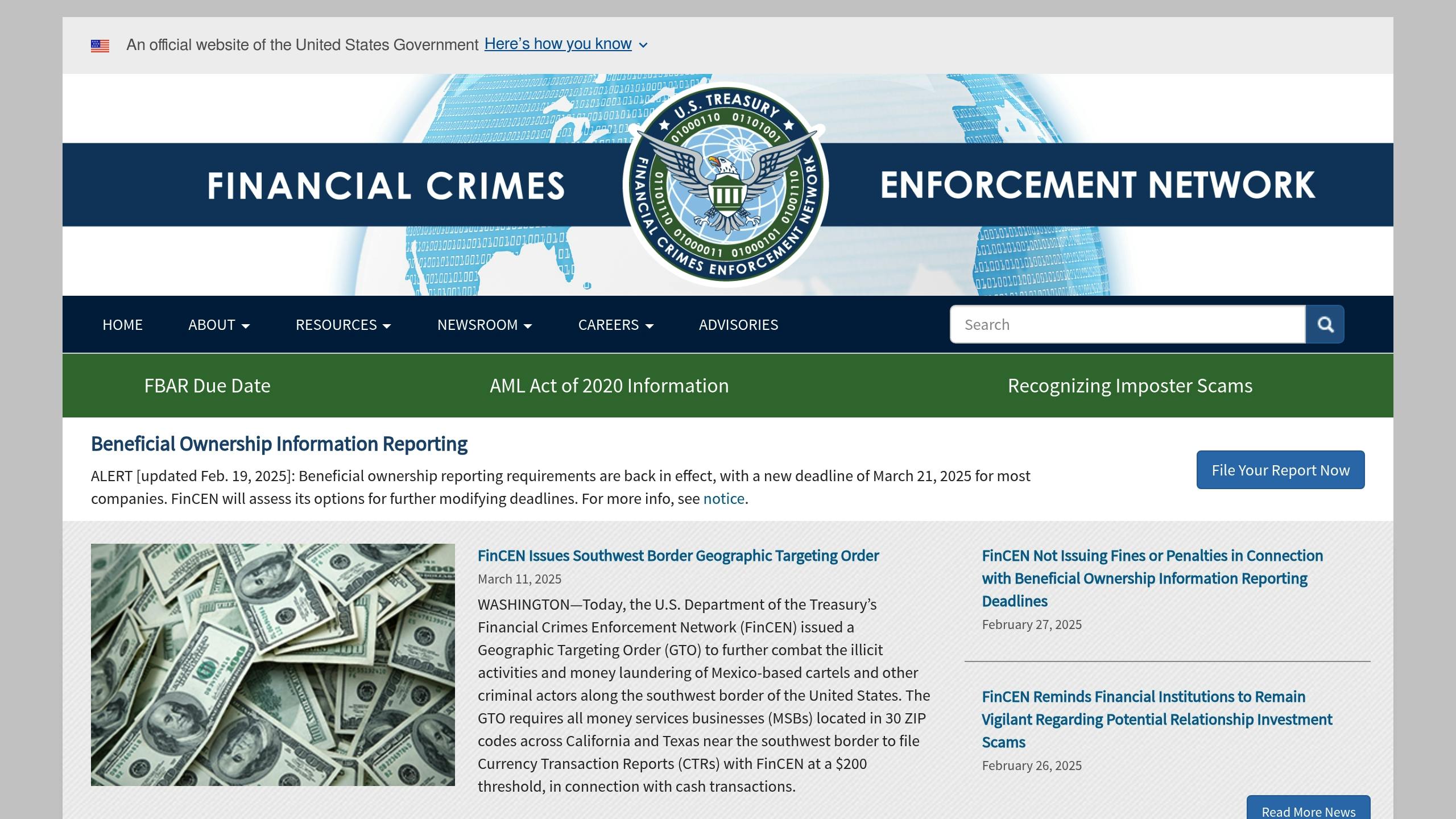- Cash reliance is costly: Operating solely in cash can cost businesses 4%-15% of their revenue.
- Digital payments boost sales: Customers spend 30% more when using cards or digital methods.
- Compliance is critical: Federal laws like the Bank Secrecy Act and FinCEN guidelines require strict adherence.
- Payment options: ACH transfers, cashless ATM systems, and point-of-banking are safer alternatives to cash.
- Security matters: Tools like smart safes, fraud detection, and proper ID verification help reduce risks.
With cannabis revenue expected to hit $45 billion in 2025, adopting compliant and secure payment systems is no longer optional - it's essential for growth. Continue reading for detailed strategies and solutions.
Payment Processing Fundamentals
How Cannabis Payments Work
Cannabis payment processing operates under stricter rules than traditional retail due to federal restrictions. These limitations mean cannabis merchants have fewer options for handling payments.
Here are the main payment methods available:
| Payment Method | Key Characteristics | Business Impact |
|---|---|---|
| Cash | Requires physical handling | Increases handling costs |
| ACH Transfers | Bank-to-bank electronic transfers | Lowers fees, reduces cash reliance |
| Point of Banking | Direct deposits to bank accounts | Aligns with federal regulations |
These differences in operations create unique hurdles for businesses in this sector.
Main Industry Obstacles
Federal prohibition creates significant barriers for cannabis businesses trying to process payments. The Association for Cannabis Banking highlights this issue:
"The cannabis industry faces significant challenges when it comes to processing payments, largely due to the conflict between state-level legalization and federal prohibition in the U.S."
These barriers can lead to missed revenue opportunities. For example, customers tend to spend 30% more when paying with cards. Additionally, heavy reliance on cash increases security risks and drives up operational costs.
"Despite the continuous developments in the legalization of cannabis at the state level, banks remain wary of being called 'weed banks' and the attached stigma of dealing with cannabis - continuing to challenge business owners."
- Ian Sells, CEO of Million Dollar Sellers
To overcome these challenges, businesses must carefully follow payment-related regulations.
Current Payment Rules
The regulatory framework for cannabis payments is complex and requires careful navigation. As Ximeng (Sammy) Tang, Partner at Goodwin Procter LLP, explains:
"Despite progress in numerous US states to authorize the distribution and use of cannabis for both medical and adult-use purposes, cannabis is still federally illegal under the Controlled Substances Act (CSA)."
Here are some of the key regulations impacting cannabis payment processing:
- Bank Secrecy Act (BSA): Mandates that financial institutions monitor and report suspicious activities.
- Anti-Money Laundering Laws: Outline how cannabis-related funds should be handled.
- FinCEN Guidelines: Offer a framework for financial institutions working with marijuana-related businesses.
With the U.S. cannabis industry expected to generate $45 billion in revenue by 2025, staying compliant with these rules is critical for long-term success.
Cannabis dispensary owners guide to Cashless ATMs and ...
Laws and Regulations
Navigating the legal framework is a critical part of managing cannabis payment processing effectively.
State vs. Federal Rules
The cannabis industry faces a unique challenge: state laws often permit cannabis sales, but federal law still prohibits them. This creates a tricky situation for payment processing.
| Regulation Level | Payment Methods | Compliance Status |
|---|---|---|
| Federal | Credit Card Networks | Prohibited |
| Federal | ACH Transfers | Compliant |
| State | Cash Transactions | Fully Compliant |
Interestingly, about 41% of Americans report not using cash for any of their weekly purchases. These conflicting rules make it harder for cannabis businesses to establish stable banking relationships, as outlined in FinCEN's guidelines.
FinCEN Rules for Banks

To address these conflicts, financial institutions follow FinCEN's specific rules for working with cannabis businesses. These rules require banks to file one of three types of Suspicious Activity Reports (SARs) for cannabis-related transactions:
- Marijuana Limited: For businesses that comply with state laws.
- Marijuana Priority: For businesses that might be violating state laws.
- Marijuana Termination: For cases where the bank ends its relationship with the business.
"This FinCEN guidance clarifies how financial institutions can provide services to marijuana-related businesses consistent with their BSA obligations, and aligns the information provided by financial institutions in BSA reports with federal and state law enforcement priorities." - FinCEN
For example, First Security Bank of Colorado implemented strict oversight for its cannabis clients, including monthly financial reviews and on-site inspections. This process led to the identification of three non-compliant businesses.
Using Correct MCCs
Merchant Category Codes (MCCs) play a crucial role in cannabis payment processing. Using incorrect MCCs is considered fraud and comes with severe consequences. In 2019, California-based delivery company Eaze was prosecuted for falsely categorizing cannabis purchases under codes for unrelated products like "carbonated drinks, green tea, and face creams".
"An accurate MCC is defined as a valid MCC that most reasonably and fairly describes the merchant's primary business." - Mastercard
To stay compliant, businesses should:
- Regularly verify their assigned MCCs.
- Ensure codes accurately reflect their activities.
- Register under the appropriate risk category.
- Monitor updates to MCC regulations.
With global cannabis revenue expected to surpass $146 billion by 2025, proper MCC compliance is not just important - it’s essential for staying competitive and avoiding legal troubles.
sbb-itb-72191b9
Payment Methods
Handling payments in the cannabis industry requires a balance of compliance and operational efficiency.
Cash Management
Managing cash can cost anywhere from 4% to 15% of revenue, with up to 8% spent on security, transportation, and banking fees.
Dispensaries reduce risks by adopting practices like:
- Smart safes: Automate counting and detect counterfeit bills.
- Regular drawer reconciliation: Ensures accurate cash tracking.
- Strict cash handling protocols: Limits opportunities for errors or theft.
- Employee training programs: Educates staff on proper procedures.
Since employee theft accounts for 90% of financial and product losses in the cannabis industry, tools like blind drawer reconciliation and random audits are critical for maintaining accountability.
Bank Transfer Options
Digital payment methods, such as ACH transfers, offer an alternative to cash that aligns with compliance requirements. These methods bypass traditional card networks, providing a more streamlined approach.
| Feature | Benefit |
|---|---|
| Digital Tracking | Better audit trails |
| Lower Fees | Reduced costs |
| Automated Processing | Increased efficiency |
| Compliance | Meets federal guidelines |
| Dispensaries with digital payment options report a 30% increase in consumer spending |
ATM Payment Systems
Cashless ATM systems, also known as point-of-banking, offer a convenient and compliant payment option. These systems now handle nearly 25% of U.S. cannabis retail transactions.
"Effectively getting your customers and retailers in and out the door with the products they came to buy is our focus and this Cashless ATM system truly accomplishes just that. It creates a seamless experience that will ultimately help your CBD or Marijuana company increase revenue, increase profits, and grow, which is our main goal." - CANNA BUSINESS RESOURCES
For example, Greatest Hits Cannabis Dispensary in Massachusetts implemented point-of-banking and saw a 31% boost in average cart size.
Key steps for implementing cashless ATM systems include:
- Installing compact terminals near POS systems.
- Conducting regular security audits.
- Training staff to prevent fraud.
- Maintaining transparent relationships with banks.
- Using encrypted payment processing for added security.
With consumer habits shifting - 41% of Americans now report making no weekly purchases using cash - the cannabis payment landscape continues to evolve toward more digital solutions.
Selecting a Payment Processor
When navigating compliance and operational hurdles, picking the right payment processor is a critical decision.
Must-Have Features
For businesses in the cannabis industry, a payment processor with a strong track record in handling high-risk transactions and strict compliance is a must.
Here are key features to look for:
| Feature | Purpose | Impact |
|---|---|---|
| High-Risk Industry Experience | Understands cannabis-specific challenges | Lowers compliance risks |
| Flexible Contract Terms | Adapts to regulatory changes | Avoids long-term commitments |
| Timely Deposits | Maintains steady cash flow | Supports smoother operations |
| Multiple Payment Options | Provides backup solutions | Reduces downtime risks |
| Real-Time Transaction Monitoring | Identifies fraud and ensures compliance | Protects business assets |
"It's critically important for any cannabis, CBD, or ancillary business to only utilize payment processors well-versed in and actively servicing high-risk industries." – 10Buds
Security Standards
Payment processors in the cannabis space must prioritize security to protect sensitive information and meet regulatory demands. Key security measures include:
1. PCI DSS Compliance
Processors must follow Payment Card Industry Data Security Standards (PCI DSS), which involve continuous monitoring and audits to protect transaction data.
2. Advanced Fraud Prevention
Modern systems should include real-time fraud detection tools. For instance, First Card Payments employs multiple layers of security such as:
- 3D Secure authentication
- Address Verification System (AVS)
- Card Verification Value (CVV) checks
- Chip and PIN systems
3. Data Protection
Tokenization and encryption ensure that both business and customer data remain secure throughout every transaction.
Strong security measures are essential, but pairing them with seamless POS integration can elevate overall efficiency.
POS System Connection
Connecting your payment processor to a Point of Sale (POS) system can simplify operations and improve your business's performance. Here’s how an integrated solution can help:
| Integration Benefit | Business Impact |
|---|---|
| Automated Data Recording | Minimizes manual errors |
| Streamlined Checkout | Enhances customer experience |
| Real-Time Inventory Updates | Optimizes inventory tracking |
| Automated Reconciliation | Reduces administrative tasks |
While standalone systems may seem cheaper upfront, they often lead to higher costs and operational headaches over time due to manual data handling and reconciliation issues.
Risk Management
Managing risks in cannabis payment processing requires strong security measures, accurate customer verification, and detailed record keeping. These elements work together to create a solid risk management approach.
Customer Verification
Verifying customer identities is a critical step in reducing risk. The F.L.A.G. method provides a structured way to check IDs:
| Verification Step | Action Required | Purpose |
|---|---|---|
| Feel | Check the texture and material of the ID | Spot counterfeit documents |
| Look | Inspect security features | Detect signs of tampering |
| Ask | Clarify suspicious details | Confirm authenticity |
| Give back/seize | Return valid IDs or confiscate fake ones | Stay compliant |
Training staff to recognize features of legitimate government-issued IDs and handle questionable transactions can help prevent incidents like the Sweet Leaf scandal.
Payment Tracking
Tracking transactions accurately is just as important as verifying identities. It ensures compliance with state laws and FinCEN guidelines. A good monitoring system should include:
- Real-time transaction screening
- Alerts for unusual activity
- Role-based access controls
- Name and address matching tools
Visa's 2021 advisory highlighted the importance of proper transaction coding and ongoing monitoring.
Record Keeping
Detailed record keeping strengthens compliance efforts and supports business stability. Here’s what you need to maintain:
| Record Type | Retention Period | Required Details |
|---|---|---|
| Sales Records | 7+ years | Invoice numbers, dates, quantities |
| Employee Data | 7+ years | Compensation details, payment methods |
| Transaction Reports | 7+ years | Full payment documentation |
| Bank Statements | 7+ years | Account reconciliation records |
Using digital tools for record keeping simplifies audits and ensures secure data storage. Regular account reconciliation and keeping business and personal finances separate can minimize errors and make audits smoother.
Conclusion
The cannabis industry is on track to hit an impressive $45 billion in revenue by 2025. Alongside this growth, payment processing methods are advancing, bringing clear benefits to businesses.
Cashless payment options are a game-changer. Customers using non-cash methods tend to spend more - averaging $112 per transaction compared to just $22 with cash. They also help reduce security risks, as 90% of industry losses are linked to employee theft. Modern payment systems streamline operations by cutting down on cash handling while enhancing overall security.
"Digital and cashless payment methods would have significantly helped cannabis businesses monitor cash flow and accounting transactions, improve business safety, make tax payments easier, and improve customer transactions." - Gerald Lombardo, Head of Growth at Popl
Dispensaries aiming for growth should focus on three key strategies:
| Success Factor | Implementation Strategy | Business Impact |
|---|---|---|
| Compliance Focus | Work with knowledgeable payment processors and maintain solid documentation | Lower regulatory risks and stronger banking ties |
| Payment Diversity | Use ACH transfers and point-of-banking solutions | Boosts transaction values by 30% |
| Security Integration | Link payment systems with POS and use advanced tracking tools | Reduces theft and increases efficiency |
These strategies highlight the importance of reliable, compliant payment systems for long-term success in this industry. With legislation like the SAFER Banking Act on the horizon, businesses that invest in strong payment solutions today will be better equipped to thrive in the future. It’s all about balancing compliance, efficiency, and the latest payment technologies.


